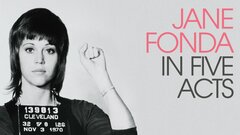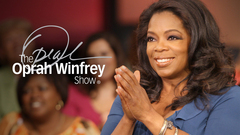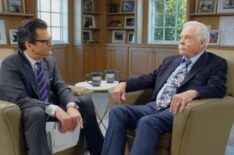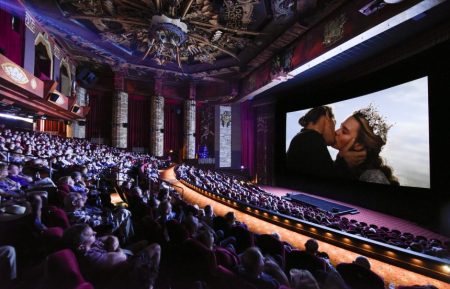Ted Turner

Businessman • Executive • Entrepreneur • Producer • Philanthropist
Birth Date: November 19, 1938
Age: 86 years old
Birth Place: Cincinnati, Ohio
Spouses: Jane Fonda
Media mogul Ted Turner built a broadcasting and entertainment empire that reshaped the multimedia landscape throughout the 1980s and '90s. Building on his family business, Turner turned a failing Atlanta-based UHF channel into TBS, America's first "Superstation." Already the owner of Atlanta's MLB and NBA franchises, Turner achieved fame as the winner of America's Cup in 1977.
Three years later, he launched CNN, the world's first 24-hour news network. More bold acquisitions and gutsy startups followed, typified by three-letter acronyms like MGM, TNT, TCM, and WCW. In addition to his business ventures, Turner made news for his philanthropic pursuits. Turner began to see a shift not only in his relationship with the company he built, but with his personal fortune as well, after successive mergers with Time Warner, Inc. and AOL.
By 2006, he had completely stepped away from duties at the media company, choosing to devote his energies to such ecological enterprises as his Turner Foundation and penning his autobiography. Truly a man of astounding ambition and fierce resolve, Turner was sure to be remembered as one of the greatest entrepreneur-philanthropist-rabble rousers in American history.
Born Robert Edward Turner III on Nov. 19, 1938 in Cincinnati, OH, "Ted" was the son of Florence and Robert "Ed" Turner, Jr. At the age of nine, Ted relocated with his family to Savannah, GA, where his father, a strict disciplinarian and heavy drinker, began a billboard business after completing his service in the Navy during World War II.
Turner developed an early love of sailing after moving to Atlanta, a pastime enjoyed alongside his responsibilities at the family business, renamed Turner Outdoor Advertising. After attending the Georgia Military Academy, the 12-year-old was sent to the McCallie School in Chattanooga, TN, where he initially had difficulty adapting to the strict disciplinary code.
Upon his acceptance at Brown University, Turner began studying the classics - an election his father found both frivolous and humiliating - as his major, joined the debate union, and competed on the sailing team. He engaged in other, less approved extracurricular activities as well, leading to his expulsion from Brown after being caught with a coed in his dormitory room.
Shortly after leaving Brown, Turner returned to Georgia to work fulltime in the family business for what would be the start of a particularly turbulent and life-altering period of his early life.
Turner's younger sister, Mary, who had been struggling with a debilitating illness for a number of years, passed away at the age of 16. Not long afterward, his recent marriage to his wife, Judy Nye Hallisey, began to falter. Then, in 1963, Turner's troubled father committed suicide, leaving the 24-year-old in charge of a business that had fallen deeply in debt.
Through hard work and a shrewd business acumen that would have even impressed his hard-to-please father, Turner not only saved the company but expanded it into a multi-million dollar enterprise within a few short years. As he prospered, the newly remarried entrepreneur turned once again to his love of sailing for pleasure, even as he assessed opportunities to be had in the evolving realms of broadcasting and cable television.
In 1970, Turner purchased WJRJ, a failing UHF channel in Atlanta, which he promptly renamed WTCG and merged with several local radio stations he had recently acquired. Combining these new assets with the increasingly robust billboard company, he christened his new media company Turner Communications Group.
Recent changes in FFC broadcasting regulations and the launching of the first communications satellites allowed the ambitious Turner to broadcast his station's meager offerings (mostly black and white TV reruns and old movies) nationwide. After purchasing the Atlanta Braves MLB and Hawks NBA franchises in 1976, Turner began broadcasting their games live, to great success.
Shortly thereafter, he renamed his cable channel WTBS (Turner Broadcasting System) and with his usual lack of humility, dubbed it the world's first "Superstation." His bravado would prove to be more than mere bluster (many pundits had by now taken to calling Turner the "Mouth from the South"), when in less than 10-years time, TBS would be viewed in 80 percent of cable-equipped U.S. homes.
Perhaps driven by the specter of his demanding father, Turner seemed determined to conquer all he surveyed. Combining his favorite pastime with an unrelenting desire to win, he sailed to victory in the 1977 America's Cup, the world's premiere yachting race, as the captain of the Courageous. Turner went on to win Britain's prestigious Fastnet sailing race in 1979, during which a sudden gale force storm killed 22 other yachtsmen in the competition.
Turner's next big move came with the establishment in 1980 of the Cable News Network (CNN), the first 24-hour all-news network, and, two years later, its companion station, Headline News. Given little respect by the more established news agencies, both TV and print, Turner's journalistic ventures gained grudging respect over the next decade with up-to-the-minute coverage of such events as the Challenger Space Shuttle disaster and the first U.S. invasion of Iraq.
At the urging of his second wife, Janie, Turner - who continually attracted negative publicity for his combative behavior - began seeing a noted Atlanta-area psychiatrist in 1985. Prescribed lithium to help cope with his manic depression and accompanying mood swings, his once mercurial temperament soon gave way to a more even-tempered, thoughtful media mogul.
That was not to say that Turner was ready to become a semi-anonymous figure in the boardroom. In 1985, he founded the Better World Society, an organization dedicated to world peace and nuclear disarmament. One year later, he promoted the Goodwill Games, his answer to the recently boycotted 1980 Olympics.
The effort, although laudable for its intended goal of easing Cold War tensions, reportedly cost Turner hundreds of millions of dollars during its existence.
After an unsuccessful bid to acquire CBS the year before, in 1986, Turner bought MGM/UA Studios in a complicated - and, many opined, wrong-headed - deal that saw him immediately selling the United Artists portion back to its original owner, and the historic MGM/UA studio lot sold to Lorimar/Telepictures.
So far in debt was he after the deal, that Turner was forced to cede minority ownership of his company to a powerful consortium of cable operators, which included Time Warner, although he still retained his controlling interest and chairmanship. Virtually all that remained from the MGM/UA deal was its vast film catalogue. Now in possession of a library that included nearly all the pre-1960 movies from United Artists, Warner Brothers and RKO, Turner reaped the benefit of the burgeoning video tape market with the subsequent sales of films like "Gone with the Wind" (1939), "Citizen Kane" (1941) and "Casablanca" (1942).
Turner launched his latest channel, Turner Network Television (TNT), with an airing of "Gone with the Wind" in 1988. Initially a portal for the older films in Turner's now gigantic library and television reruns, the station soon began to focus on sports and original programming.
It also became the site of much controversy when Turner - a self-proclaimed film lover and dedicated preservationist - began airing newly colorized versions of movies originally filmed in black and white. Viewed by most cinephiles as the desecration of cherished works of art, Turner portrayed the technological development as a means with which he could attract younger audiences unaccustomed to black and white movies.
Controversial and as shoddy as they may have been, the video sales of his newly colorized films added substantially to his already massive wealth, and by the end of the decade Turner had officially achieved billionaire status.
In 1990, the nature-loving tycoon founded the Turner Foundation and the Captain Planet Foundation, a pair of ecology-focused organizations. The latter of the two enterprises was aimed at educating children via the Turner-created eco-superheroes seen on the animated adventure series "Captain Planet and the Planeteers" (TBS, 1990-96).
As momentous as the 1980s had been for Turner, the next decade would prove just as eventful. Divorced from his second wife years earlier, Turner married actress-activist-fitness guru Jane Fonda in 1991, following a year-long courtship.
Although the relationship left some observers scratching their heads, the fact that both individuals came into the relationship secure in their own fame, wealth and accomplishments - in addition to the sense that each had mellowed somewhat in their golden years - made the union of the two devout liberals not so surprising after all.
That same year, he was named "Man of the Year" by Time magazine, becoming the first media figure to be given the honor.
More acquisitions came in 1992 with the purchase of the Hanna-Barbara cartoon library and consequent premier of cable's Cartoon Network, followed by Turner's picking up the film companies Castle Rock Entertainment and New Line Cinema.
In 1994, Turner launched Turner Classic Movies (TCM), a channel designed to compete directly with American Movie Classics (AMC) in the arena of classic film programming. Commercial free, usually uncut and hosted by noted film historian Robert Osborne during primetime, the old movies aired on TCM appeared in their original format and did not include any of the faddish colorized versions, much to the delight of cinema purists.
Turner Broadcasting purchased the Southern-based wrestling promotion company Jim Crockett Promotions in 1988 and renamed it World Championship Wrestling (WCW). The struggling business eventually thrived and triumphed in the ratings by the mid-to-late 1990s, until various factors led to its decline and acquisition by WCW's chief competitor, Vince McMahon's World Wrestling Federation (WWF) in 2001.
Companies were not the only things Turner was buying like so many trading cards. By the mid-1990s he had become the largest private landowner in the U.S., with ranch properties in Montana, Oklahoma, New Mexico, South Dakota and Kansas.
Turner indulged his passion for Civil War history and a desire to extend his reach to feature film production with the New Line-distributed "Gettysburg" (1993), in which he made an uncredited cameo appearance as doomed soldier Colonel Waller T. Patton.
When the Atlanta Braves won the World Series in 1995, Ted Turner truly seemed to be a man on top of the world.
It was, however, in the second half of the decade that the always volatile media landscape began to shift unpredictably. Turner Broadcasting System officially merged with Time Warner, Inc. in October of 1996, a seismic event which left Turner as the new conglomerate's largest individual shareholder and acting Vice Chairman, a position he maintained for seven years.
Not long after the merger became official, Turner was relieved of his day-to-day duties as the head of cable operations and, in particular, the running of TBS.
Always outspoken in his political views, Turner put his money where his mouth was in 1997 with a $1 billion donation to his newly instituted United Nations Foundation, in an effort to support the international organization's agenda of world peace and global stability.
After separating a year earlier, Turner and Fonda divorced in 2001, officially ending their 10-year marriage. As turbulent as this personal episode had been for him, there were more rough waters ahead for the mogul in the professional arena, as well.
That same year saw the mega-merger of Time Warner with email provider America On Line (AOL), a move that Turner initially endorsed, but later soured on after the company suffered a reported $98 billion loss a mere two years later.
Turner launched his first restaurant chain with Ted's Montana Grill in 2002. An upscale Montana-style eatery, it specialized in items made with bison, a once-nearly extinct species Turner raised in larger numbers than any other ranch owner in the world.
In 2003, he sold off more than half his shareholdings and stepped down as company Vice Chairman at Time Warner. In 2006, Turner announced that he would not seek re-election for his position on the board of directors at the company in order to focus more on his philanthropic efforts.
Having more time to devote to personal interests after leaving his positions at Time Warner, he released his autobiography Call Me Ted in 2008. In the view of several critics, the effort was hindered somewhat by the author's admitted aversion to dwelling on the past - an attitude inherently problematic when writing one's life story.
Turner slipped to 2nd as the country's largest private landowner in 2011, overtaken by media-communications giant John C. Malone.
By Bryce Coleman
Credits

Call Me Ted

Ted Turner: Captain Planet

Jane Fonda in Five ActsStream

WCW Starrcade 1985

WWE: Monday Night War: Volume 1 - Shots Fired Part 4

WWE: Monday Night War: Volume 1 - Shots Fired Part 1

WWE: Monday Night War: Volume 1 - Shots Fired Part 2

WWE: Monday Night War: Volume 1 - Shots Fired Part 3

20th Annual Trumpet Awards

This Week With Christiane Amanpour

Gods and Generals

Gods and Generals

The New Adventures of Captain Planet

The New Adventures of Captain Planet

The Oprah Winfrey ShowStream

CBS News Sunday Morning

Good Morning America

60 MinutesStream



